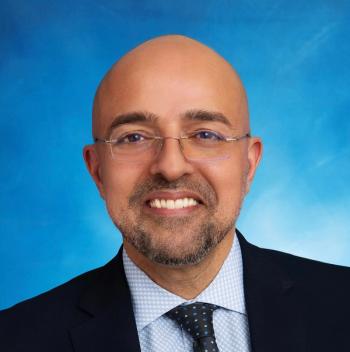
Digital Therapeutic Freespira Gets FDA OK to Treat PTSD
Half of the patients no longer met the diagnostic criteria for PTSD after using the new digital therapeutic.
A new digital therapeutic from Palo Alto Health Sciences to treat patients with post-traumatic stress disorder (PTSD) has been cleared by the U.S. Food and Drug Administration (FDA), according to
The therapeutic, Freespira, is a drug-free treatment for PTSD, panic disorder, panic attacks and other panic symptoms. Treatment includes two 17-minute in-home sessions daily for four weeks and is completed under the supervision of a licensed healthcare provider. The tool is said to correct abnormal breathing patterns by training the user to stabilize and normalize their breathing rate.
>>
Freespira underwent a clinical trial to demonstrate its efficacy for veterans and other patients suffering from PTSD. The aim of the study was to see whether Freespira could reduce the patient’s CAP-5 score, which is an in-person validated clinical assessment tool used to measure the severity of the disease. Response to the therapeutic was defined as a reduction of six or more points to users’ CAPS-5 scores. Remission was defined as response, no longer meeting clinical symptom criteria and achieving a CAPS-5 score less than 25.
Most subjects reached the six-point reduction in their CAPS-5 score at two months (93 percent) and six months (91 percent) post-treatment. Eighty-six percent of patients had a 13-point reduction in their score at six months, and half of the patients no longer met the criteria for PTSD. Patient adherence to the treatment protocol was 77 percent.
The FDA cleared Freespira to treat PTSD based on the results of the trial.
“The availability of an effective, four-week, drug-free intervention is a game changer for people suffering from PTSD,” said staff psychiatrist Michael Ostacher, M.D., MPH, MMSc, associate professor of psychiatry and behavioral sciences at the Stanford University School of Medicine.
PTSD occurs after a traumatic event such as combat, an accident, an assault or a physical trauma such as an explosion. Eight million adults are diagnosed annually, and about 7 to 8 percent of the U.S. population will experience PTSD in their lifetime.
Exposure-based psychotherapeutic methods with or without the addition of medication are the most common treatments for PTSD. Medications have limited efficacy and are no longer recommended in the clinical guidelines for the management of PTSD as a first-line treatment.
“Treatment with Freespira allows patients to avoid the revisiting of traumatic memories common in treatment with exposure therapy while at the same time decreasing the need for highly trained specialists and long-term time investment to deliver this type of therapy,” the release said.
The FDA clearance is but the latest step forward for
Earlier this week, Pear Therapeutics
Get the best insights in healthcare analytics
Related Coverage:







































